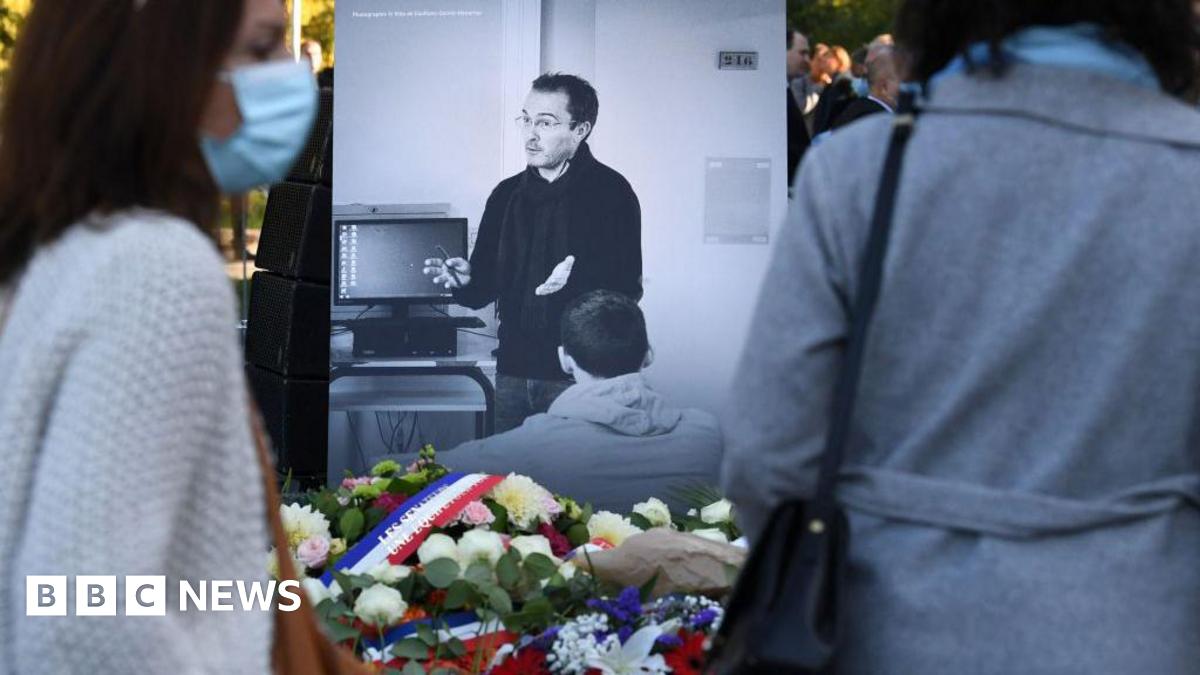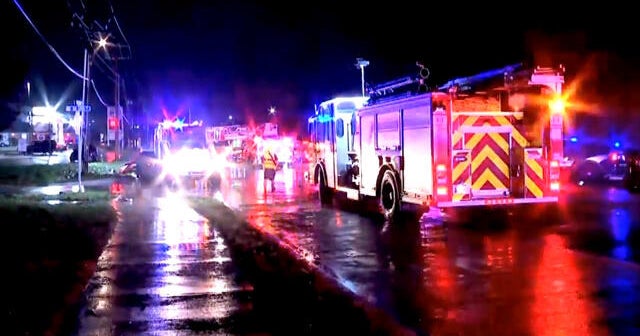Samuel Paty murder: Defendants face sentencing for actions that led to beheading
Chnina and Sefrioui never called for action against Pati, and they were unaware of Anzorov’s existence until after the murder.
But for the prosecution, they were guilty of “terrorist organization” because they knew the possible consequences of their campaign.
“No one is saying they wanted Samuel Paty dead, but when they set off 1,000 digital fuses, they knew one of them would trigger jihadist violence against the teacher,” he said, according to the prosecution’s filing.
The context was one of rising tensions over jihadist violence in October 2020 after Charlie Hebdo republished some controversial Mohammed cartoons. Five years ago, most of the magazine’s staff were killed in a jihadist attack on its Paris office.
In court this week, the longest prison terms were sought for two of Anzorov’s friends who accompanied him when he bought knives and fake guns. One of them took Anzorov to school in the second half of the attack.
None of these defendants are radical Muslims, and the court did not establish that they knew about Anzorov’s plans.
Therefore, the prosecution reduced the charge against them to “participation in a terrorist act”, which carries a possible life imprisonment.
The other four accused are the people Anzorov talked to without ever revealing his intention to kill Pati.
One of them, Priscilla Mangel, a convert to Islam, admitted to making “provocative” comments online about the Paty case, but said she would never have told Anzorov if she had known his intentions.
“For me, it was an anodyne discussion with an anonymous person.”
Defense attorneys say none of the defendants would have faced criminal charges if not for Patyn’s murder.
Thus, the main legal question before the court is whether statements can be unlawful depending on:








